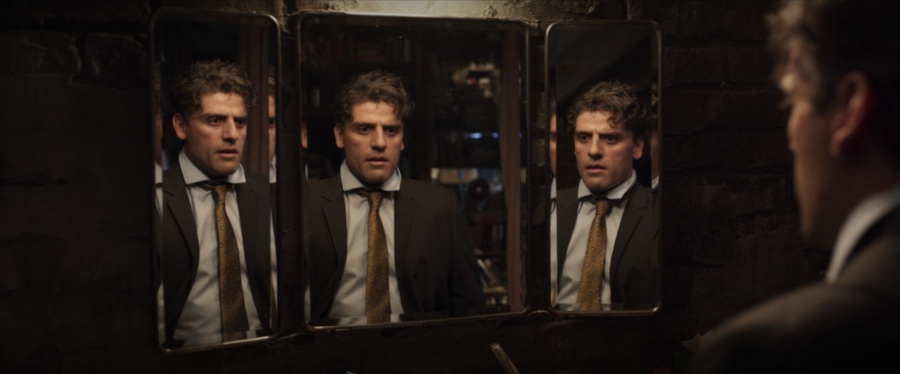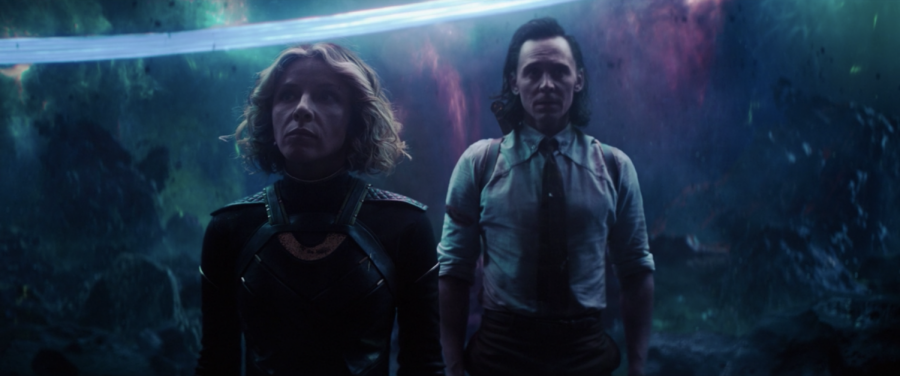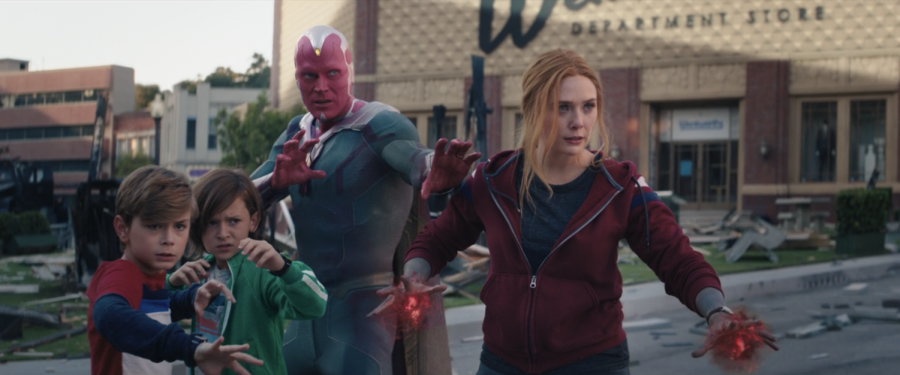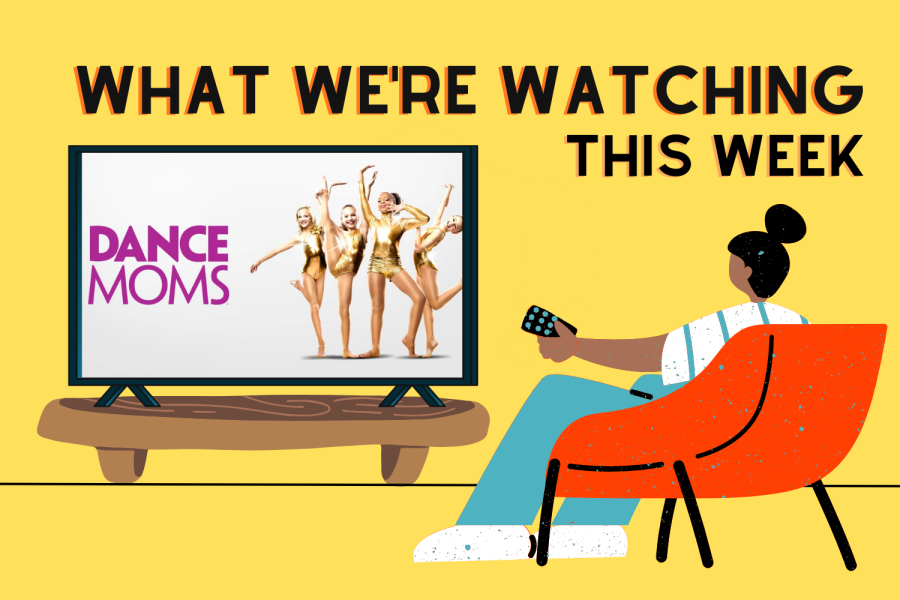I have a confession to make: I’m not a Disney+ subscriber.
Despite my dual status as Marvel diehard and critic—and the fact that I’ve somehow watched almost two full seasons of the “Tangled” series (don’t ask)—I’ve never found it necessary to become more than just the sneaky sixth user profile on my friend’s mom’s dog’s cousin’s Disney+ account (thank you Amber <3).
Even more embarrassing: our (yes, our) Disney+ subscription has expired. And it seems like the release of “Moon Knight,” the MCU’s latest television show, was planned to coincide precisely with this expiration—just to spite me.
After finding a friend with whom to watch the premiere, I decided to make “Moon Knight” judge, jury and executioner. If it was good—a wildly different Marvel TV experience, as promised by each and every obnoxious Twitter ad—maybe I’d consider reupping my subscription and sharing it with my friend’s mom’s dog’s cousin. If it was bad—then I’d be living from free trial to free trial until I ran out of emails to use.
All this to say: “Moon Knight” is here. I was skeptical, and I watched it anyway. However, I feel like I might as well have not watched anything at all.

Because it’s structured vaguely like the Chris Nolan classic “Memento,” albeit with a shorter runtime that can’t afford to explain why this structure is in place, almost nothing of substance happens in episode one. Oscar Isaac’s Steven Grant—a scatterbrained museum gift shop employee—has some sort of sleep condition, or dissociative identity disorder, in which he zones out of his body and a destructive alternate personality takes over. But Grant’s very own Tyler Durden has less than a minute of screen time, so all we really get to do is watch Grant run around like a confused, sleepy idiot for 45 minutes. I shouldn’t complain, though—the exposition-heavy alternative is worse.
Admittedly, watching Isaac frolic around London as his character(s) deals with the aftermath of these “episodes” is fun for a while, especially considering how his dialogue is absolutely littered with cheeky British lingo. In just the first five minutes, he says “innit,” “mate,” “cheers,” “bloody hell” and even “bullocks,” in an accent that’s so annoyingly funny that we don’t have time to stop and consider whether it’s realistic. With both the voice and the mental age of a 14-year-old, Grant seems like Marvel’s latest misguided attempt at creating an eccentric Tumblr sexyman. In case it wasn’t obvious, this kind of character is wildly out of place in the world of the show, but this probably won’t stop Tumblr. Nothing will.
From the little that episode one is willing to spoon-feed us, the plot of the series will be something like Willem Defoe’s Green Goblin—Grant and his alternate self—squares off against the cult of a mysterious Egyptian God with a “Minority Report” complex. Led by Ethan Hawke’s Arthur Farrow, this cult judges you for your crimes before they happen, with the end goal of creating a better world (cough, Karli Morgenthau, cough). This could potentially be something great, if director Mohamed Diab decides not to string us along with suave yet empty plots where nothing happens until the final five minutes. But we all know those are Marvel’s favorites.
Regardless of my perhaps-unfair presumptions, the dialogue writing in this first unassuming episode isn’t terrible, largely because there isn’t much of it. Likewise, the disjointed nature of the action, due to Grant’s unnamed condition, keeps things interesting and helps characterize him during not only the more intense sequences but also some of the episode’s lighter beats.
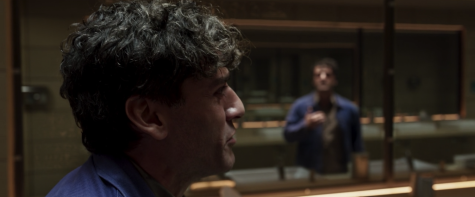
Many of these merrier moments drive home the dichotomy between his two personalities, such as his unreturned phone calls to his mother—which he signs off by saying “laters, gators”—and a similarly one-sided conversation with a street performer. A fun chase sequence where Grant runs from Farrow’s goons in a cupcake truck gives us a few marvelous views of the Alps too, which I’ll never say no to. I will, however, say no to Hawke’s hair.
As an English major, lately I’ve been swearing by the phrase “form mirrors content,” which is the idea that the structure of a fictional work can mimic its subject matter. The episodic formula behind Nolan’s “Memento” is a masterclass in bringing this concept to life, so the fact that “Moon Knight” seems to want to emulate it will be something key to watch out for as the show continues.
Grant’s feeling of being unanchored in time and doing things he can’t remember—the sense of literally being two people trapped in the same body fighting for control—could lend itself to some outlandish structural choices or even just some stylish scene design. While we do get one scene framed neatly with an upside-down reflective view in a puddle, this is the only instance of what I’d hoped for, and I know the show can do better.
This means that it seems I’m going to have to postpone my decision, as “Moon Knight” hasn’t yet earned the right to judge, jury or execute. Episode one’s choice to play it relatively safe, as is Marvel tradition, suggests that the crew hasn’t yet decided whether to fully take the bait and create something truly weird. Let’s just say this: if they want me to resubscribe, they’re gonna have to bite down hard on that hook—hard enough to drag me in.
Episode one of “Moon Knight” is now streaming on Disney Plus.

